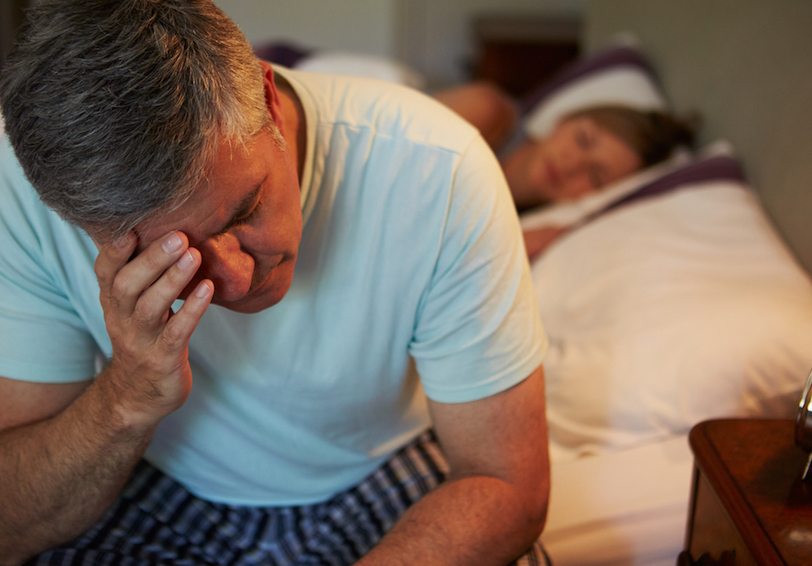The relationship between Post-Traumatic Stress Disorder (PTSD) and sleep disturbances is well-established, with individuals experiencing PTSD often facing challenges in obtaining restorative and quality sleep. The impact of trauma on sleep can exacerbate existing symptoms and contribute to a cycle of distress. Here, we examine the relationship between PTSD and sleep disorders and discuss strategies for improving sleep in individuals with PTSD.
Relationship Between PTSD and Sleep Disturbances:
- Nightmares and Flashbacks:
- Intrusive Memories: PTSD is characterized by intrusive memories of traumatic events. Nightmares and flashbacks can disrupt sleep, causing individuals to wake up with heightened anxiety or distress.
- Fear of Sleep: Fear of experiencing nightmares or flashbacks during sleep may lead to insomnia, where individuals avoid sleep or experience difficulty falling asleep.
- Hyperarousal and Insomnia:
- Persistent Arousal: Hyperarousal is a common symptom in PTSD, leading to increased physiological and psychological activation. This heightened state of arousal can interfere with the ability to relax and fall asleep.
- Difficulty Initiating Sleep: Insomnia, characterized by difficulty initiating or maintaining sleep, is prevalent in individuals with PTSD.
- Night Sweats and Nightmares:
- Physiological Reactions: Night sweats, increased heart rate, and other physiological reactions may accompany nightmares or night terrors, disrupting the sleep cycle.
- Sleep Fragmentation: Constant awakenings and fragmented sleep contribute to a decreased overall sleep quality.
- Hypervigilance and Sleep Disturbances:
- Constant Alertness: Individuals with PTSD often experience hypervigilance, a state of constant alertness to potential threats. This heightened state can persist during sleep, leading to frequent awakenings.
- Difficulty in Returning to Sleep: Once awakened, individuals may struggle to return to sleep due to persistent hypervigilance.
- Nightmares Impacting REM Sleep:
- Impact on REM Sleep: Nightmares are prevalent during Rapid Eye Movement (REM) sleep. Individuals with PTSD may experience disruptions in the normal progression of REM sleep, impacting the overall sleep architecture.
Strategies for Improving Sleep in Individuals with PTSD:
- Establishing a Consistent Sleep Routine:
- Regular Sleep Schedule: Encourage individuals to maintain a consistent sleep schedule by going to bed and waking up at the same time each day, even on weekends.
- Creating a Relaxing Bedtime Routine: Establish calming pre-sleep rituals, such as reading, gentle stretching, or practicing relaxation techniques.
- Creating a Sleep-Conducive Environment:
- Comfortable Bedding: Ensure the sleep environment is comfortable and conducive to relaxation. Comfortable pillows and bedding can enhance sleep quality.
- Reducing Stimuli: Minimize noise, light, and other stimuli in the bedroom to create a quiet and dark sleep environment.
- Addressing Nightmares and Flashbacks:
- Therapeutic Interventions: Therapies such as Imagery Rehearsal Therapy (IRT) can be effective in reducing the frequency and intensity of nightmares by modifying their content.
- Eye Movement Desensitization and Reprocessing (EMDR): EMDR is a therapeutic approach that has shown efficacy in reducing the impact of traumatic memories, potentially alleviating nightmares.
- Cognitive-Behavioral Therapy for Insomnia (CBT-I):
- Addressing Sleep-Disruptive Thoughts: CBT-I focuses on changing thoughts and behaviors that contribute to insomnia. It can be tailored to address specific sleep disturbances related to PTSD.
- Sleep Restriction and Relaxation Techniques: CBT-I may involve strategies such as sleep restriction, relaxation techniques, and cognitive restructuring.
- Mindfulness and Relaxation Techniques:
- Mindfulness Meditation: Mindfulness practices, such as mindfulness-based stress reduction (MBSR) or mindfulness meditation, can help individuals manage hyperarousal and promote relaxation.
- Progressive Muscle Relaxation (PMR): PMR involves tensing and relaxing muscle groups to release physical tension and induce relaxation.
- Limiting Stimulants and Alcohol:
- Caffeine and Nicotine: Advise individuals to limit or avoid stimulants like caffeine and nicotine, especially in the hours leading up to bedtime.
- Alcohol Consumption: While alcohol may initially induce sleep, it can disrupt the later stages of the sleep cycle and exacerbate sleep disturbances.
- Physical Activity:
- Regular Exercise: Encourage regular physical activity during the day, as exercise has been shown to improve sleep quality. However, avoid intense exercise close to bedtime.
- Yoga and Tai Chi: Gentle exercises like yoga or tai chi can combine physical activity with relaxation techniques.
- Seeking Professional Help:
- Consulting a Sleep Specialist: For persistent sleep disturbances, individuals may benefit from consulting a sleep specialist who can assess and address specific sleep-related issues.
- Collaborative Treatment: Coordinated care between mental health professionals and sleep specialists can provide a holistic approach to addressing both PTSD and sleep disturbances.
- Medication Management:
- Prescription Medications: In some cases, medication may be prescribed to help manage sleep disturbances. This should be done under the guidance of a healthcare professional.
- Cautious Use: While medications may provide short-term relief, their long-term use should be carefully monitored due to potential side effects and the risk of dependency.
- Social Support and Communication:
- Open Communication: Encourage individuals to communicate with their support system about their sleep challenges. Open communication fosters understanding and allows for collaborative problem-solving.
- Engaging in Shared Relaxation: Couples or family members can engage in shared relaxation activities before bedtime, promoting a calming and supportive atmosphere.
Improving sleep in individuals with PTSD requires a comprehensive and individualized approach that considers both the specific symptoms of PTSD and the unique sleep challenges an individual may face. By addressing these aspects collaboratively, individuals can work towards achieving better sleep quality, promoting overall well-being, and supporting the broader process of PTSD recovery.

